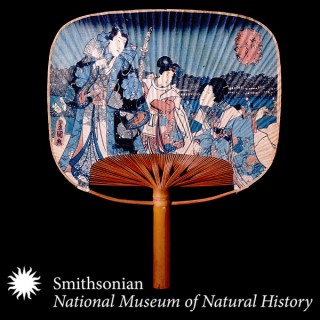
Science Education Lectures
Follow Science Education LecturesSince 1846 the Smithsonian has followed its mission for "... the increase and diffusion of knowledge ..." In the 21st century, though, diffusion may be too slow a process for the timely transmission of knowledge. In this seminar series five leading figures in the study of science education shared th…
Smithsonian Institution National Museum of Natural History
- Sep 22, 2011 LATEST EPISODE
- infrequent NEW EPISODES
- 1h 17m AVG DURATION
- 5 EPISODES
More podcasts from Smithsonian Institution National Museum of Natural History
Latest episodes from Science Education Lectures

Research Methods & Surprising Findings: How Rigorous Research & Analysis Reveals What People Really Do and Learn in Museums
Martin Storksdieck is Director of the Board on Science Eduaction at the National Academy of Sciences/National Research Council where he oversees studies that address a wide range of issues related to science education. He is also a research fellow at the Institute for Learning Innovation, involved in a variety of research studies on informal science learning. Martin is interested in factors that influence scientific and technical literacy, particularly the role of lifelong learning within the ecology of learning opportunities. Another focus of Martin's interest is the intersection of science, society and learning, primarily as those relate to the understanding of evolution and environmental change.

E. Margaret Evans is Lecturer in the Department of Psychology and Assistant Research Scientist at the Center for Human Growth and Development at the University of Michigan, Ann Arbor. She examines the development of childrens' intuitions about causation because these provide the foundation for their understanding of the major domains of inquiry they encounter in and out of school. Her Ph.D. in developmental psychology focused on the emergence of evolutionary concepts in families from diverse religious communities. She has been a co-PI, learning researcher, and exhibit developer for three different exhibitions on evolution. Since 1846 the Smithsonian has followed its mission for "... the increase and diffusion of knowledge ..." In the 21st century, though, diffusion may be too slow a process for the timely transmission of knowledge. In this seminar series five leading figures in the study of science education shared the results of their research on how science can be communicated most effectively to the public, particularly in informal settings such as museums.

John H. Falk is Sea Grant Professor in Free-Choice Learning in the Department of Science and Mathematics Education at Oregon State University, Portland. Before going to OSU, he founded and directed the Institute for Learning Innovation where for twenty years he oversaw more than 200 consulting projects across a wide range of free-choice learning institutions. Dr. Falk has authored over one hundred scholarly articles and chapters in the areas of learning, biology and education, and helped to create several nationally important out-of-school educational curricula. His most recent book is Identity and the Museum Visitor Experience (2009). Since 1846 the Smithsonian has followed its mission for "... the increase and diffusion of knowledge ..." In the 21st century, though, diffusion may be too slow a process for the timely transmission of knowledge. In this seminar series five leading figures in the study of science education shared the results of their research on how science can be communicated most effectively to the public, particularly in informal settings such as museums.

Philip Bell is Associate Professor of the Learning Sciences and the Geda and Phil Condit Professor of Science and Mathematics Education at the University of Washington, Seattle. He studies everyday expertise and cognition in science and health, the design and use of novel learning technologies in science classrooms, children's argumentation, culturally responsive science instruction, the use of emerging digital technologies within youth culture, and new approaches to inquiry instruction in science. Dr. Bell is a member of the NAS Board on Science Education and co-chaired the NRC report Learning Science in Informal Environments. Since 1846 the Smithsonian has followed its mission for "... the increase and diffusion of knowledge ..." In the 21st century, though, diffusion may be too slow a process for the timely transmission of knowledge. In this seminar series five leading figures in the study of science education shared the results of their research on how science can be communicated most effectively to the public, particularly in informal settings such as museums.

Bruce J. MacFadden is Curator of Vertebrate Paleontology at the Florida Museum of Natural History and Professor of Geological Sciences, Latin American Studies, and Zoology at University of Florida, Gainesville. He has authored over 150 articles on mammalian systematics, paleoecology, and evolution, and also published research on how visitors to natural history museums understand evolution. He has participated in many exhibits and public education projects at FMNH. This year MacFadden is Program Officer for Informal Science Education in NSF's Directorate of Research on Learning in Formal and Informal Settings.

















